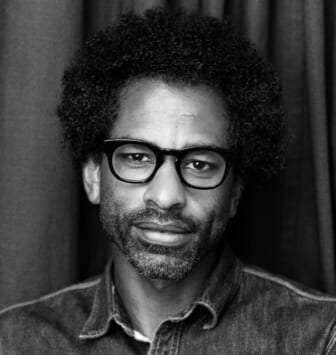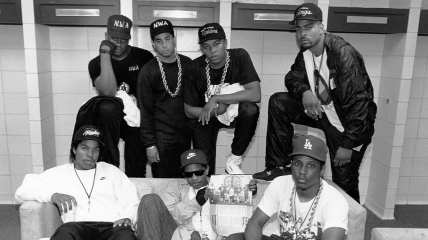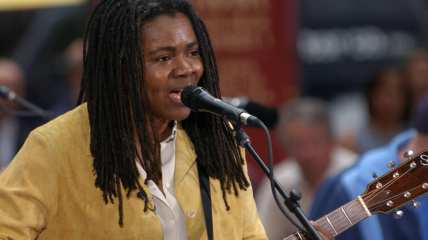‘Being Black: The ’80s’: The story of Donna Summer’s ‘She Works Hard For the Money’ shows Summer’s big heart
OPINION: The Queen of Disco once found an attendant asleep in a bathroom, and from that, a hit song was born.

Editor’s note: The following article is an op-ed, and the views expressed are the author’s own. Read more opinions on theGrio.
Once upon a time, there was an undisputed Queen of Disco and her name was Donna Summer. She made lots of massive hits — in 1979, the haunting “MacArthur Park” went to No. 1, then “Hot Stuff,” and then “Bad Girls” did, too. She was one of the hottest artists in the industry.
But Summer was from Boston, and in her autobiography “Ordinary Girl,” she talked about being deeply depressed as a child. When she was a teenager, she saw a therapist at a time when that was unheard of. So when she became a star, she never forgot about the so-called ordinary people. She never saw herself as above them; she was one of them. And that perspective allowed her to see something that led to one of her greatest songs, “She Works Hard For the Money.” There’s a really interesting story behind the birth of that record. We tell the story on “Being Black: The ’80s” in an episode called “Donna Summer x Women’s Liberation.”
To get the story right, I called Summer’s widower Bruce Sundano, who now lives in Italy. If you want the whole story, listen to the episode, but I’ll give you the short version here. Sudano said that one night in LA after some award show or something, he and Summer and others on her team were out at a famous L.A. restaurant called Chasen’s. Summer went into the bathroom. That’s where she saw the bathroom attendant asleep on the job.
We know some people would look at that sleeping woman and shame her for sleeping while she’s supposed to be serving the people in the bathroom. Can you imagine a modern Karen discovering that and losing her entitled mind and running to the manager to try to get her fired? It would have been easy for Summer, who was then on top of the world, to not even notice this sleeping attendant. But she did, and she saw her through empathetic eyes. She knew she was sleeping because her life is hard.
Later, Summer told a reporter, “I had such a feeling of love and compassion for this woman. I really appreciated her role in society and began to think of other people with similar roles who do odds and ends, like waitresses, hat-check girls and mothers without husbands who keep society where it should be but don’t get credit.”
She thought of the phrase, “She works hard for the money,” and immediately realized it was a song. Summer ran back to her table and wrote down “She works hard for the money,” and a song emerged from that. A few days later, she recorded it and it became another hit.
The bathroom attendant was named Onetta Johnson. She was near the end of a double shift. She also had two jobs. Johnson said, “I was exhausted because it was after 2:30 a.m. I was saying to myself, ‘Why don’t these people go home?’ I had to take a nursing exam the next day.”
She was a waitress and also a nurse — working two jobs like that, she damn sure worked hard for every dollar. But not everyone would notice that. Not everyone would even see her. Summer saw her and had empathy. She understood her and then she walked out and created a great song. On the cover of her next album, Summer posed in a pink waitress outfit. On the back cover, there was Summer in that same outfit, standing beside Johnson. She became one of the core inspirations for the album.
On this episode of “Being Black: The ’80s,” we go deeper into the story behind “She Works Hard For the Money,” but we also explore ways of getting more capital into Black women’s hands. We talk about what this country can do for Black women economically and what Black women can do to get more capital. We have conversations with some Black female venture capitalists and people who are experts at how to get VC funds, so we can dive into how Black women can get the money they need to build the companies they dream of creating. She may work hard for the money now, but one day, she won’t have to. One day, her money will work hard for her.

Touré is a host and Creative Director at theGrio. He is the host of the docuseries podcast “Being Black: The ’80s.” He is also the host of the podcast “Toure Show” and the podcast docuseries “Who Was Prince?” He is the author of eight books including the Prince biography Nothing Compares 2 U and the ebook The Ivy League Counterfeiter.
TheGrio is FREE on your TV via Apple TV, Amazon Fire, Roku, and Android TV. Please download theGrio mobile apps today!


